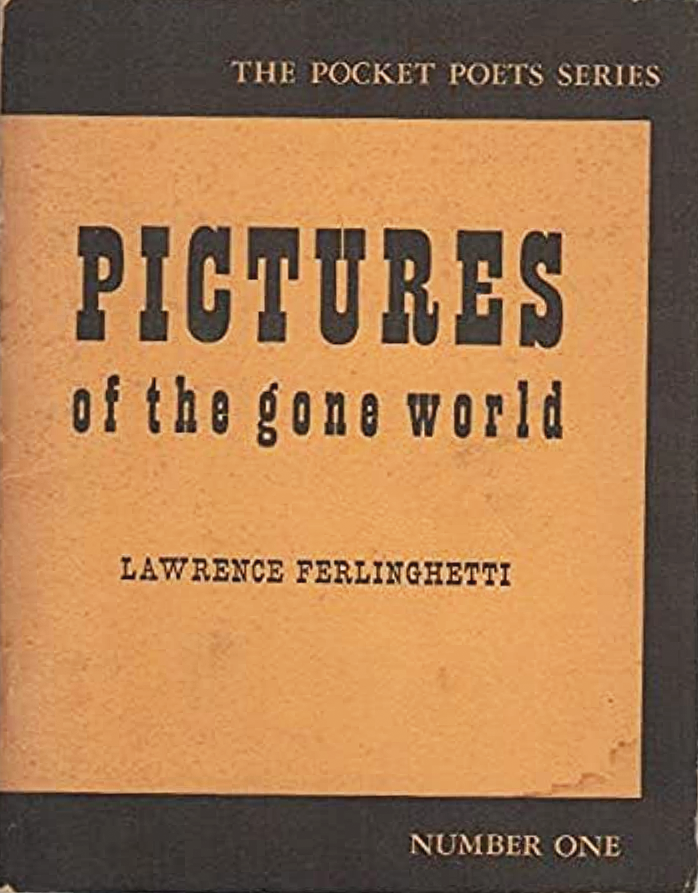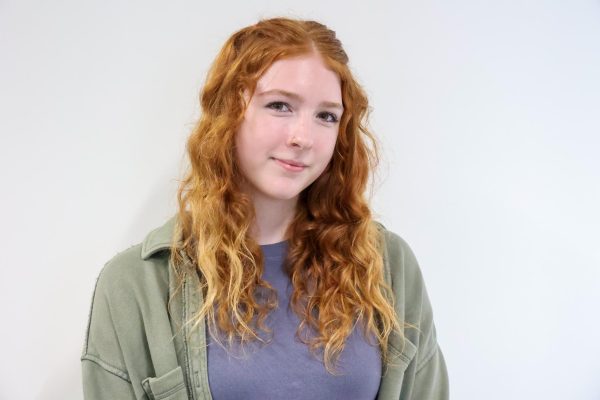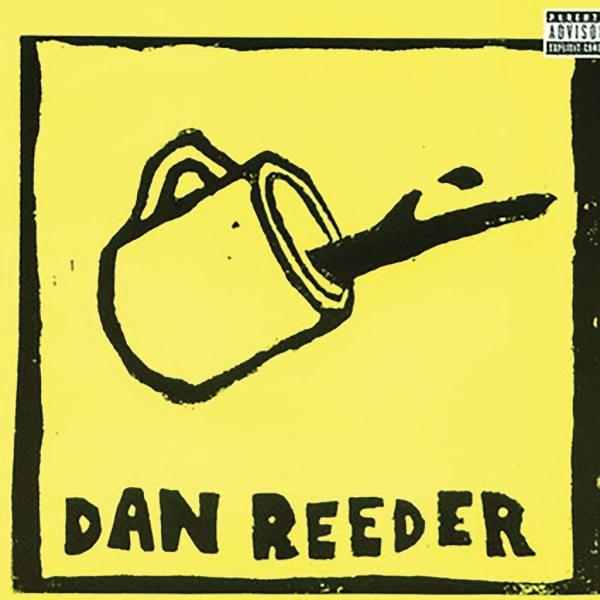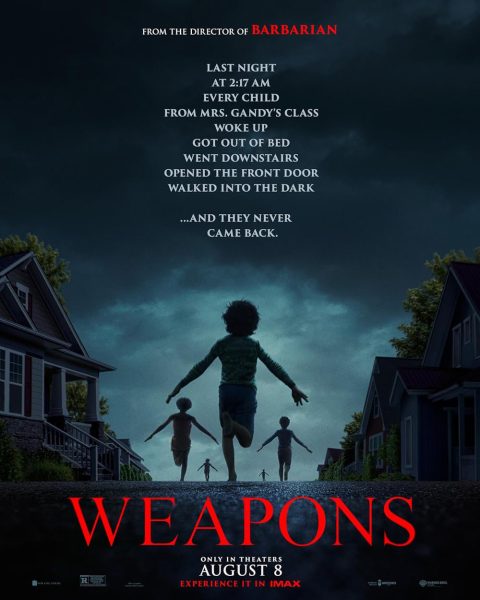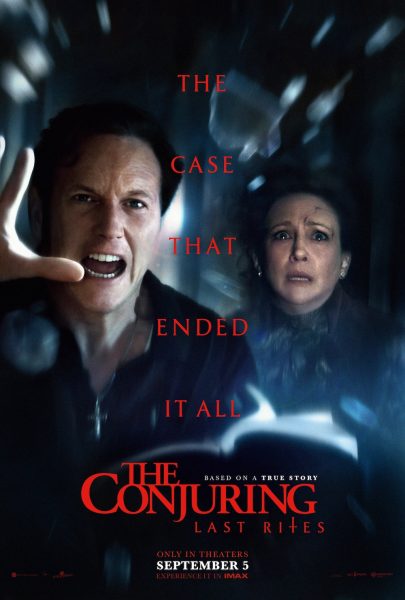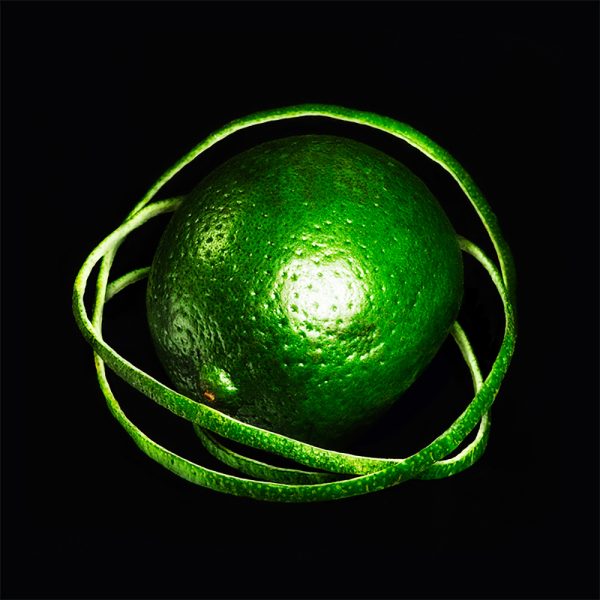City of Lights: Four Pocket Poets Series reviews
The City Lights Pocket Poets is a compilation of poetry published through San Francisco’s City Lights Books since August of 1955 and pioneered by Lawrence Ferlinghetti.The collection of affordable miniature books is known for its black and white covers with the number of each new book printed on the front. This series is often associated with the Beat generation, considering Ferlinghetti’s heavy influence in the scene, along with publishing poets such as Ginsberg and Kerouac.
Lawrence Ferlinghetti
Pictures of the Gone World
No. 1, 1955
Pictures of the Gone World is the perfect book to start the City Lights Pocket Poets series. Ferlinghetti embraces many of his personal beliefs in an almost mundane way with his choice of themes and tone, making his messages versatile to the reader. Each poem is fairly short and varies in topics and different concepts, yet the format of each poem is organized to complement the previous one, flowing perfectly throughout the book.
Reading this compilation felt like looking through an old photo album, hence the title. Ferlinghetti writes about certain art movements and pieces, along with the vivid imagery in his words.
While I’ve read many articles and books that view Beat poetry as raunchy and unnecessarily explicit, this compilation of poems demonstrates the opposite.
Pictures of the Gone World is Ferlinghetti’s first poetry book, as is quite evident after reading his novel, Little Boy, and Poetry As Insurgent Art, a later compilation of poems. Pictures of the Gone World reflects Ferlinghetti’s earlier life, and though his material is still cynical and witty, this is more apparent later in his career. He writes about politics, art, life, time, and more. A Coney Island of the Mind, his second poetry compilation, is a more blatant example of his reputation for absurdity. Ferlinghetti can perfectly pull such common emotions from unexpected situations and metaphors, relating to history and simple everyday interactions, having the ability to make the insignificant significant.
Excerpt from “Poem 25:”
“Oh the world is a beautiful place to be born into/ if you don’t mind a few dead minds in the higher places/ or a bomb or two now and then/ in your upturned faces/ or such other improperties/ as our name brand society/ is prey to/ with its men of distinction/ and its men of extinction/ and its priests/ and other patrolman.”
Frank O’Hara
Lunch Poems
No. 19, 1964
Frank O’Hara’s humorously controversial persona combined with philosophical concepts such as afterlife and coexistence create an intimate relationship between the reader and his poetry. I’ve read this book about five times in 2022, and my admiration for it has never faltered. O’Hara writes with such passion and sentiment; it’s as if he’s writing a letter personally curated for many different audiences in a flimsy 76-page paperback.
Although O’Hara’s writing is eloquent and effective, there’s a certain casualness in his work. This is even shown in the title, as you can imagine O’Hara writing poems in Times Square, eating his lunch. He writes about monumental aspects of 1960s New York: from museums to movies, art, and more. Although O’Hara wasn’t necessarily a Beat, the influence and similarities of that generation’s work are visible through his, making it a great City Lights Pocket Poets book worth reading.
Excerpt from “Naphtha”:
“How are you feeling ancient in September/ I am feeling like a truck on a wet highway/ how can you/ you were made in the image of god/ I was not/ I was made in the image of a sissy truck driver/ and Jean Bedfuffet painting his cows/ “with a likeness burst in the memory”/ apart from love (don’t say it)/ I am ashamed of my century/ for being so entertaining/ but I have to smile.”
Will Alexander
Divine Blue Light (For John Coltrane)
No. 63, 2022
I personally believe Will Alexander’s Divine Blue Light is the most interesting compilation of poems on this list. This paperback had unique and captivating poems far more contemporary than most of the Beat’s work in the series. Alexander’s uniqueness reminded me of Sun Ra and the dedicated John Coltrane.
This compilation of poems has a musical rhythm with the flow and organization along with descriptive language. This is the perfect book to channel Coltrane. Reading his work feels like listening to a newly discovered instrument that can only be heard through Alexander’s writing. This is the first time I’ve read Alexander’s work, which I plan to revisit. This compilation has many different subjects that demonstrate Alexander’s views vividly. Alexander’s surrealist writing style combined with his lyrical approach creates an extraordinarily impactful piece of literature. This book includes many themes such as history, philosophy, and astronomy that work amazingly together.
Excerpt from: “On Eroded Solar Masses”
“Say each eroded molecular cloud contained uncountable solar masses not typical but destiny per cubic centimeter/ welling up across a million years never speaking of the highest suns through a totem o errors/ but totem/ taking from destiny no known error/ alive as pattern/ as irrational ascension/ sans squared implacable winds/ teeming sub-flow as absentia.”
Diane di Prima
Revolutionary Letters
No. 27, 1968
Diane di Prima’s beautiful writing and relevant topics create an astonishing compilation of poems, known as Revolutionary Letters. Prima writes about spirituality, feminism, and slight anti-establishment beliefs.
This is the only book of Prima’s I’ve read. This collection of poems that resemble Margret Atwood with hints of Simone de Beauvoir. The poem was unique in how Prima shortened words as if it was a text message, using “wd” and “yr.”
There are many factors besides the subjects themselves that make Prima’s work mirror the world today, from her choice of spelling, to references and important figures. I think this book will resonate with many people in this generation, remarkably so, considering it was written in the 1960s.
Despite preferring other approaches to this genre of poetry, I still love this book and would undoubtedly recommend it. My favorite aspect would have to be Primas’s ability to blend a utopian reality into the real world as if we are already experiencing it. Although Prima has cynical elements in her poetry, there are also uplifting anecdotes that make the dystopian element of her work shed light on how to live in it.
Excerpt from: “Revolutionary Letter #11”
“It’s not about your hair, not really, it’s just what the TV tells him about hippies got him scared, what he reads in his magazines/ got him scared, we got to come out from behind the image/ sit down with him, if he sat down to a beer with you he’d find a helluva lot more to say than he’ll find with the man who makes your image/ he’s got nothing in common with the men who run his mind, who tell him what to think of us’/ SMASH THE MEDIA, I said, AND BURN THE SCHOOLS/ so people can meet, can sit and talk to each other, warm and close/ no TV image flickering between them.”
Blood on the Fog
No. 62, 2021
Tongo Eisen-Martin
Blood on the Fog by Tongo Eisen-Martin is intellectually written with the feeling of waking up from a deep sleep, seeing the world from a different lens.
This collection of poetry covers a wide range of subjects, including social and political views, racism, loss, faith, white supremacy, life, and imperialism. Throughout his poetry, you can pick up on a Beat writing style influence while reflecting on the history of many atrocities.
Martin writes with such indignation and rigor when it comes to these jaded topics, not just simply reciting the events, but instead vomiting the information out in an impactful manner. He writes very vividly, causing readers to reflect on his work days after reading it, coming up with new meanings and interpretations. Throughout his often jaded manner, Martin writes in such an intricate form that reflects the heavy topics.
Excerpt from: “A Sketch about Genocide”
“We call this the ordeal blues/ Now crawl on to the piano seat and made a blanket for your cell/ Paint scenes of a child dancing up to the court appearance/ And leaving a man,/ but not for home/ Atlantic ocean charts mixed in with parole papers/ Mainstream funding (the ruling class’s only pacifism)/ Ruling class printing judges (fiat kangaroos)/ making judges hand over fist/ Rapture cop packs and opposition whites all above a thorny stem/ Caste plans picked out like vans for the murder show/ anglo-saints addicting you to a power structure/ you want me as a little slave, don’t you?/ bash his little brain in/ and send him to your civil rights.”


